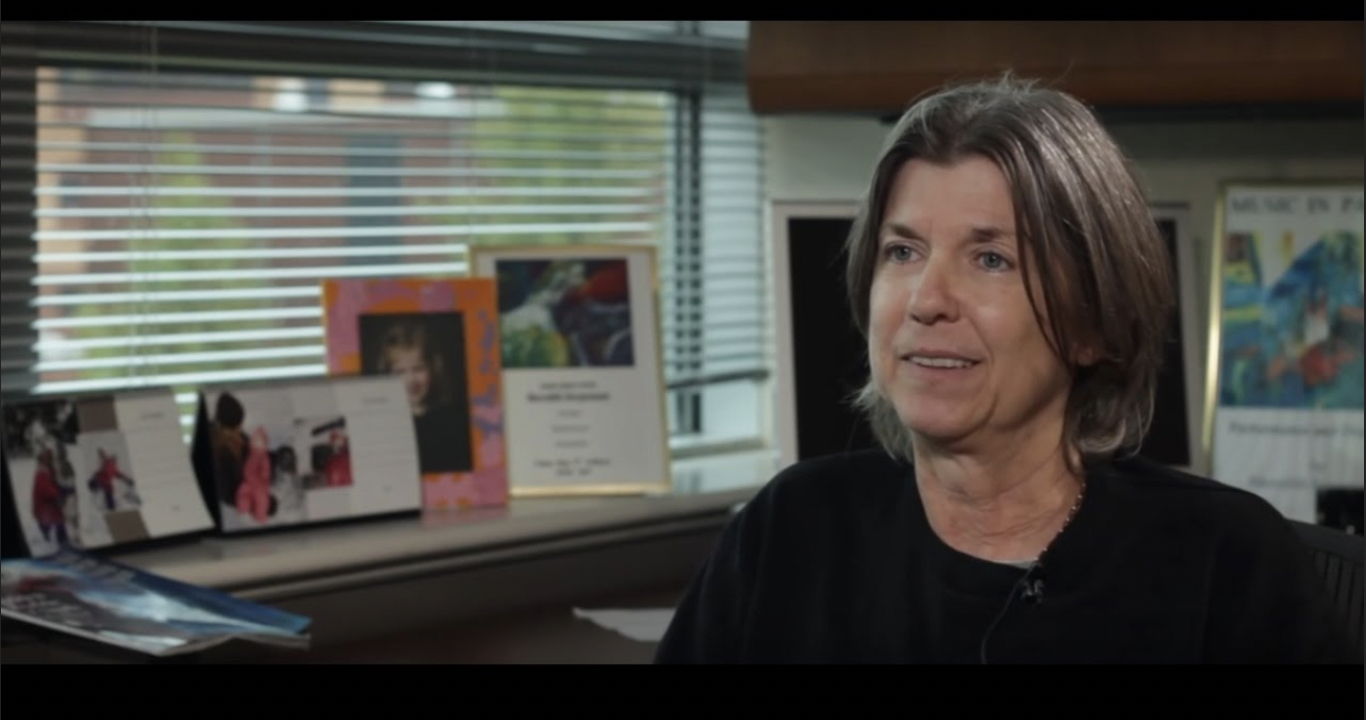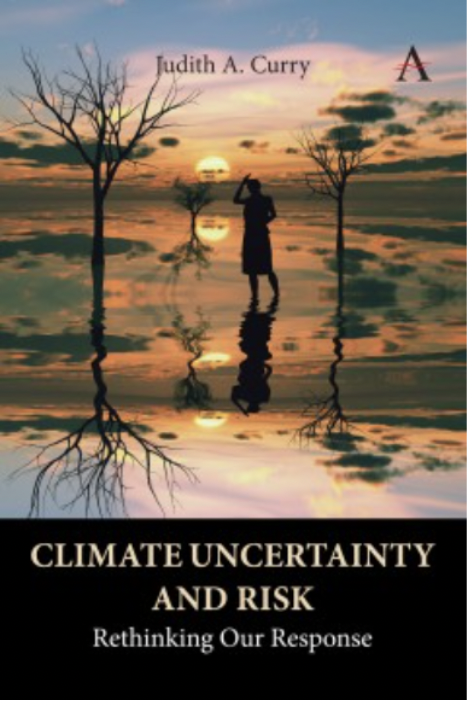When you hear or read something from a credible scientist that resonates entirely with your own thinking about a subject, expressing everything you have developed as a point of view, it not only gives you the comfort of confidence. It provides motivation to spread those marvellous words – that clear and eloquent expression of what you believe to be important – well beyond your personal thinking. It is in that spirit that I reproduce a few paragraphs from climate scientist JUDITH CURRY’S latest column (Nov. 17, 2023) on her blog Climate Etc.
Speaking consensus to power
A critical strategy in the politicization of science is the manufacture of a scientific consensus on politically important topics, such as climate change and Covid-19. The UN climate consensus is used as an appeal to authority in the representation of scientific results as the basis for urgent policy making. In effect, the UN has adopted a “speaking consensus to power” approach that sees uncertainty and dissent as problematic and attempts to mediate these into a consensus. The consensus-to-power strategy reflects a specific vision of how politics deals with scientific uncertainties.
There is a key difference between a “scientific consensus” and a “consensus of scientists.” When there is true scientific certainty, such as the earth orbiting the sun, we don’t need to talk about consensus. By contrast, a “consensus of scientists” represents a deliberate expression of collective judgment by a group of scientists, often at the official request of a government.

Judith Curry
Institutionalized consensus building promotes groupthink, acting to confirm the consensus in a self-reinforcing way. The UN Intergovernmental Panel on Climate Change (IPCC) has worked for the past 40 years to establish a scientific consensus on human-caused climate change. As such, the IPCC consensus is a “manufactured consensus” arising from an intentional consensus building process. The IPCC consensus has become canonized socially through a political process, bypassing the long and complex scientific validation process as to whether the conclusions are actually true.
The flip side of a manufactured consensus is “denial.” Questioning the climate change narrative has become the ultimate form of heresy in the 21st century. Virtually all academic climate scientists are within the so-called 97 percent consensus regarding the existence of a human impact on warming of the Earth’s climate. Which scientists are ostracized and labeled as deniers? Independent thinkers, who are not supportive of the IPCC consensus, are suspect. Any criticism of the IPCC can lead to ostracism. Failure to advocate for CO2 mitigation policies leads to suspicion. Even a preference for nuclear power over wind and solar power will get you called a denier. The most reliable way to get labeled as a denier is to associate in any way with so-called enemies of the climate consensus and their preferred policies—petroleum companies, conservative think tanks, or even the “wrong” political party.
Covid-19 provides a very interesting example of a manufactured consensus. The consensus that COVID-19 had an entirely natural origin was established by two op-eds in early 2020 -The Lancet in February and Nature Medicine in March. The Lancet op-ed stated, “We stand together to strongly condemn conspiracy theories suggesting that COVID-19 does not have a natural origin.” The pronouncements in these op-eds effectively shut down inquiry into a possible origin as a leak from a laboratory in Wuhan. Articles in the mainstream press repeatedly stated that a consensus of experts had ruled lab escape to be out of the question or extremely unlikely.
The enormous gap between the actual state of knowledge in early 2020 and the confidence displayed in the two op-eds should have been obvious to anyone in the field of virology, or for that matter anyone with critical faculties. There were scientists from adjacent fields who said as much. The consensus wasn’t overturned until May 2021 with the publication of a lengthy article in the Bulletin of Atomic Scientists that identified conflict of interests in the scientists writing the Lancet letter in hiding any links with the Wuhan lab. This article triggered a cascade of defections from scientists – the fake consensus was no longer enforceable.
What is concerning about this episode is not so much that a consensus was overturned, but that a fake consensus was so easily enforced for more than a year. A few scientists spoke up, but they were aggressively cancelled from social media. The vast majority of scientists who understood that there was a great deal of uncertainty surrounding the origins of the virus did not speak up. It was becoming increasingly clear that any virologist who challenged the community’s declared views risked being labeled as a heretic, being canceled on social media, and having their next grant application turned down by the panel of fellow virologists that advises the government grant distribution agency. The ugly politics behind this fake consensus are only now being revealed.
Political and moral biases in a manufactured consensus can lead to widely accepted claims that reflect the scientific community’s blind spots more than they reflect justified scientific conclusions. A manufactured consensus hampers scientific progress because of the questions that do not get asked and the investigations that are not undertaken. Further, consensus enforcement interferes with the self-correcting nature of science via skepticism, which is a foundation of the scientific process.
 This article includes excerpts from my new book, Climate Uncertainty and Risk.
This article includes excerpts from my new book, Climate Uncertainty and Risk.
JUDITH CURRY
Education
1982 Ph.D. The University of Chicago, Geophysical Sciences
1974 B.S. cum laude Northern Illinois University, Geography
Professional Experience
2006-present President, Climate Forecast Applications Network, LLC
2017-present Professor Emeritus, Georgia Institute of Technology
2002-2016 Professor, School of Earth and Atmospheric Sciences Georgia Institute of Technology
2002-2014 Chair, School of Earth and Atmospheric Sciences Georgia Institute of Technology
1992-2002 Professor, University of Colorado-Boulder Department of Aerospace Engineering Sciences Program in Atmospheric and Oceanic Sciences Environmental Studies Program
1989-1992 Associate Professor, Department of Meteorology, Penn State
1986-1989 Assistant Professor, Dept of Earth and Atmospheric Sciences, Purdue Univ
1982-1986 Assistant Scientist, Dept of Meteorology, University of Wisconsin-Madison
Awards/Honours
2011 Graetzinger Moving School Forward Award, Georgia Tech
2007 Fellow, American Association for the Advancement of Science 2006 Best Faculty Paper Award, Georgia Tech Sigma Xi
2004 Fellow, American Geophysical Union
2002 NASA Group Achievement Award for CAMEX-4
2002 Green Faculty Award, University of Colorado
1997 Elected Councilor, American Meteorological Society
1995 Fellow, American Meteorological Society
1992 Henry G. Houghton Award, the American Meteorological Society
1988 Presidential Young Investigator Award, the National Science Foundation
